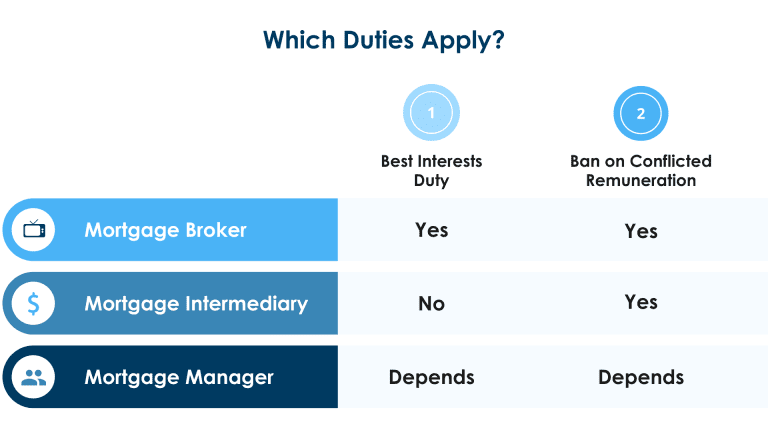- in European Union
- with readers working within the Securities & Investment industries
- within Privacy, Government, Public Sector and Immigration topic(s)
- with Senior Company Executives, HR and Inhouse Counsel
ASIC has taken action against Australian Financial Services ("AFS") licensees who failed to comply with the Design and Distribution Obligations ("DDO"). ASIC has explicitly called on AFS licensees to review their distribution practices in Report 795 Design and distribution obligations: Compliance with the reasonable steps obligation.
AFS licensees who are distributors might wonder if this is relevant, as most of the action taken by ASIC was in relation to issuers and distributors are not responsible for setting the distribution conditions outlined in the Target Market Determination ("TMD"). While this may be true, the Corporations and ASIC Regulatory Guide 274 ("RG 274") outline that as a distributor, you also have obligations under the DDO.
Here is an overview the DDO obligations of distributors.

Obligation not to distribute a financial product unless the TMD has been made
As a distributor, you must not engage in retail product distribution conduct unless:
- you reasonably believe that a TMD has been made by the issuer or a TMD is not required, after making all reasonable inquiries; or
- you are giving personal advice or dealing in a financial product by arranging for a retail client to apply for or acquire a financial product ("excluded conduct").
Retail product distribution conduct includes:
- dealing in a financial product;
- giving a disclosure document in relation to offering a financial product;
- providing a Product Disclosure Statement ("PDS"); and
- providing financial product advice.
Importantly, this also includes the giving of a PDS via a website. This means that distributors should take care to ensure that any retail consumer who accesses a PDS via its website is within the target market for that product. See below for further information.
Obligation to take reasonable steps in relation to distribution
You must take reasonable steps that will result in the distribution being consistent with the most recent TMD (unless the distribution is excluded conduct). (Section 994E(3) of the Corporations Act).
RG 274 includes a list of factors that can help distributors to assess what reasonable steps need to be taken:
- the likelihood of the distribution being inconsistent with the TMD;
- the nature and degree of harm that might result from the financial product being issued otherwise than in accordance with the TMD; and
- the steps that can be taken to eliminate or minimise the likelihood of the distribution being inconsistent with the TMD.
It is important to keep in mind that simply complying with the distribution conditions noted in the TMD or any agreement with the issuer is not sufficient to satisfy the distributor's reasonable steps obligation.
RG 274 states that distributors should consider other additional steps that are reasonable to take. Factors to consider include:
- the steps taken by the distributor to comply with the distribution conditions as well as any additional steps;
- how the distributor interacted with the consumers ("distribution method") and how this is reasonably likely to direct and limit distribution to the target market;
- the content and medium used by the distributor to deliver promotional or advertising materials to the consumer;
- the effectiveness of the distributor's product governance arrangements;
- the steps taken by the distributor to eliminate or appropriately manage the risk that incentives for staff can encourage behaviour that can be inconsistent with the TMD;
- the training provided by the distributor to staff involved in the distribution operations; and
- how the distributor assesses whether the consumer is reasonably likely to be in the target market for the financial product.
Obligation to notify the issuer of significant dealings
Distributors who become aware of a significant dealing in the financial product, that is not consistent with the TMD, have an obligation to notify the issuer as soon as practicable but within 10 business days.
This obligation is designed to help notify the issuer to make timely and appropriate decisions, as well as reporting significant dealings to ASIC. It's important distributors are aware of:
- what constitutes a significant dealing – this should be defined in the TMD;
- how the issuer expects to be notified – this should be agreed between the issuer and the distributor;
- are representatives trained in how to identify a significant dealing and what to do when this occurs?
Obligation to keep records
The distributor plays a key role in directly interacting with the consumers. As a result, distributors must keep complete and accurate records of distribution information, this might include:
- the number of complaints received about a financial product; and
- information specified by the issuer in the TMD to report back to the issuer.
The information needs to be circulated back to the issuer as soon as practicable but within 10 business days after the relevant reporting period defined in the TMD.
This obligation is designed to:
- provide the issuer with greater insight into consumer outcomes;
- help the issuer understand whether they need to update the TMD; and
- support the issuer to identify whether a review trigger has occurred, or another event would reasonably suggest that the TMD is no longer appropriate.
Distributors must also keep records of distribution information for up to 7 years. Distribution information includes:
- the number of complaints a distrubitor receives in relation to the financial products;
- steps a distributor has taken to ensure that its distribution is consistent with the TMD;
- information that a distributor is required to report to the issuer as specified in the TMD;
- dates on which a distributor reported the number of complaints received during the specified reporting period to the issuer;
- dates on which a distributor reporting other information specified in the TMD that the distributor must report; and
- dates on which a distributor reported any significant dealings in the product.
Further Reading
- DDO for Issuers: https://sophiegrace.com.au/design-and-distribution-ddo-regime/?srsltid=AfmBOood4CBVL8kDwc4eewvOmZWPsb7FUFyrsMCOjzWSvL6uJmUrmEKs
- Section C of ASIC Regulatory Guide 274: https://asic.gov.au/regulatory-resources/find-a-document/regulatory-guides/rg-274-product-design-and-distribution-obligations/
- Media Release: https://asic.gov.au/about-asic/news-centre/find-a-media-release/2024-releases/24-200mr-asic-calls-on-product-issuers-to-review-distribution-practices-for-ddo-compliance/
- Report 795 Design and distribution obligations: Compliance with the reasonable step obligations: https://asic.gov.au/regulatory-resources/find-a-document/reports/rep-795-design-and-distribution-obligations-compliance-with-the-reasonable-steps-obligation/
The content of this article is intended to provide a general guide to the subject matter. Specialist advice should be sought about your specific circumstances.

